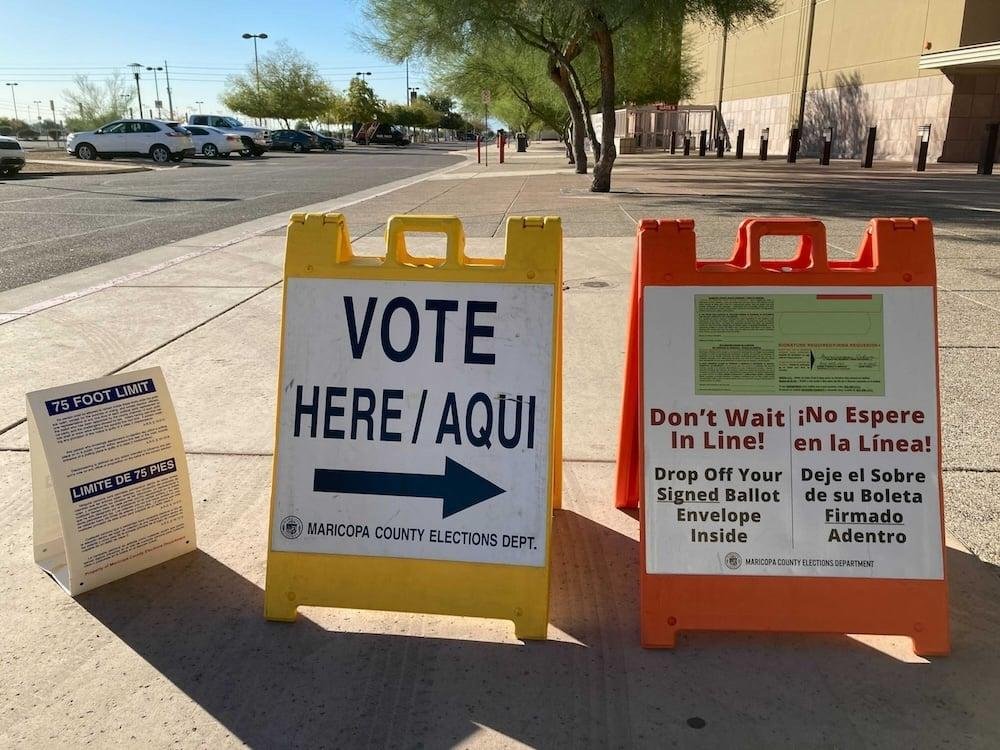arizona
Latino Voters Prioritize Economic Concerns in 2024 Election, New Survey Reveals

Latino voters are voicing significant concerns as the November elections approach, particularly regarding the escalating cost of living, minimum wage, and housing affordability. A recent survey conducted by UnidosUS, the nation’s leading Hispanic civil rights organization, underscores these issues.
Janet Murguía, president and CEO of UnidosUS, emphasized the importance of presenting a coherent economic policy that resonates with Latino communities. “This would go a long way for our community,” she stated during a press call discussing the survey findings.
The comprehensive survey encompassed 3,000 eligible Hispanic voters interviewed from August 5 to 23, with an oversampling of residents from key states including Georgia, North Carolina, and Florida. Conducted by BSP Research, the poll carries a margin of error of plus or minus 1.8 percentage points.
Murguía pointed out that Latinos represent the second-largest voting-age group, with 1 in 5 planning to vote for the first time in a presidential election this November. “Top of mind are pocketbook issues,” she stated, highlighting the concern among Hispanic voters about rising living costs.
Access to abortion rights is another critical issue. The survey indicates that Latino voters oppose abortion bans by a 71% to 21% margin, showing strong support for reproductive rights. “They do not support making it illegal,” Murguía added.
Wages and job security for Latino workers emerge as top priorities, according to Gary Segura, who led the UnidosUS research. Many Latino workers earn the federal minimum wage of $7.25, unchanged since 2009, which, if adjusted for inflation, should be around $24. “The lived economy for Latinos is different than the national average,” Segura remarked.
Concerns about job quality and wages were prevalent among respondents, with many stating that they struggle to afford essentials like food and housing. “Jobs don’t pay enough,” was a common sentiment, underlining that low unemployment rates do not equate to sufficient living wages, according to Segura.
In terms of immigration, which has become a focal point for former President Donald Trump’s campaign, it ranks lower on Latino voters’ priority list. Murguía noted that it ties with concerns about gun violence. “Latino voters overall are not buying into campaign tactics that demonize immigrants,” she asserted.
The survey also revealed strong backing among Latino voters for providing a legal pathway to citizenship for Dreamers and long-term undocumented residents. Contrarily, Trump’s promise of mass deportations finds “virtually no support” among surveyed Latino voters, according to Segura.
Despite Trump’s advocacy for deportation, there exists skepticism within Latino communities regarding whether he could implement such policies effectively. “Many believe he may attempt it, but doubts linger about his capability to follow through,” Segura noted.
Moreover, the survey indicates a lack of engagement from political parties, with 55% of Latino participants reporting no contact this year. Segura commented on the dismissive language often associated with Latino electoral participation, criticizing the failure to meaningfully engage these voters.
The recent bilingual campaign led by Vice President Kamala Harris aims to connect with Latino voters, particularly in battleground states like Arizona and Pennsylvania. The survey found that running mates influence Latino voting preferences, with demographics shifting based on candidates.
While Democrats maintain a lead among Latino voters, achieving previous levels of support remains a challenge. Clarissa Martinez De Castro of UnidosUS underscored the need for improved communication, particularly regarding economic and immigration issues. Harris shows increasing Latino support but still trails behind Biden’s 2020 figures.

















